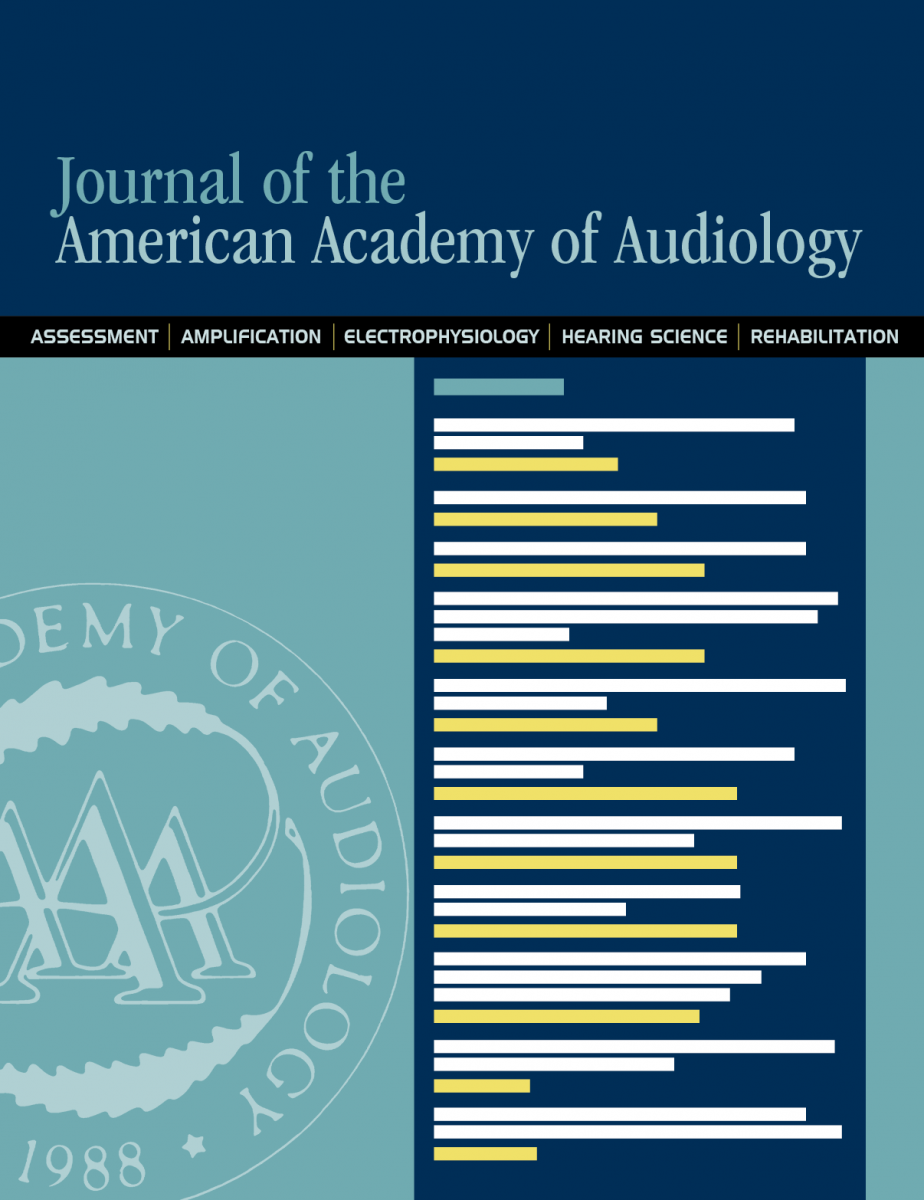Vol. 31, No. 1 (January 2020) of the Journal of the American Academy of Audiology (JAAA) is now available online (login required).

Editorial
Clinical Case Reports: Striking the Right Balance
Devin L. McCaslin
Articles
Tinnitus Sound Therapy Trial Shows Effectiveness for Those with Tinnitus
Richard S. Tyler, Ann Perreau, Thomas Powers, Alexandra Watts, Rachael Owen, Helena Ji, and Patricia C. Mancini
Interactions Between Digital Noise Reduction and Reverberation: Acoustic and Behavioral Effects
Paul Reinhart, Pavel Zahorik, and Pamela Souza
Visual Reliance During Speech Recognition in Cochlear Implant Users and Candidates
Aaron C. Moberly, Kara J. Vasil, and Christin Ray
Skill Transference of a Probe-Tube Placement Training Simulator
Robert W. Koch, Hasan Saleh, Paula Folkeard, Sheila Moodie, Conner Janeteas, Sumit K. Agrawal, Hanif M. Ladak, and Susan Scollie
Evaluation of a Remote Microphone System with Tri-Microphone Beamformer
Jace Wolfe, Mila Duke, Erin Schafer, Christine Jones, Lori Rakita, and Jarrod Battles
Can the Lateralized Readiness Potential Detect Suppressed Manual Responses to Pure Tones?
David Jackson Morris, K. Jonas Brännström, and Catherine Sabourin
When Can Stable AutoNRT Thresholds be Expected? A Clinical Implication When Fitting Young Children
Andreas Björsne and Lennart Magnusson
Case Report
Symptoms, Audiometric and Vestibular Laboratory Findings, and Imaging in a Concurrent Superior Canal Dehiscence Syndrome and Vestibular Schwannoma: A Case Report
Doug Garrison, Laura Barth, David Kaylie, and Kristal Riska
Recent Posts
ASLP-IC Readies for Rollout: Here’s What You Need to Know
The Audiology and Speech-Language Pathology Interstate Compact (ASLP-IC) continues to move toward full implementation, expanding opportunities for audiologists and speech-language pathologists to practice across state…
How Do Animals Perceive Music?
Music can be defined as vocal, instrumental, or mechanical sounds, with rhythm, melody or harmony, and often, an expression of human emotion. Music can transcend…
‘Eye’ on Health: AI Detects Dizziness and Balance Disorders Remotely
Interesting research led by audiologist Ali Danesh, PhD, at Florida Atlantic University (FAU) helped develop a novel, proof-of-concept tool to help identify nystagmus using a…


